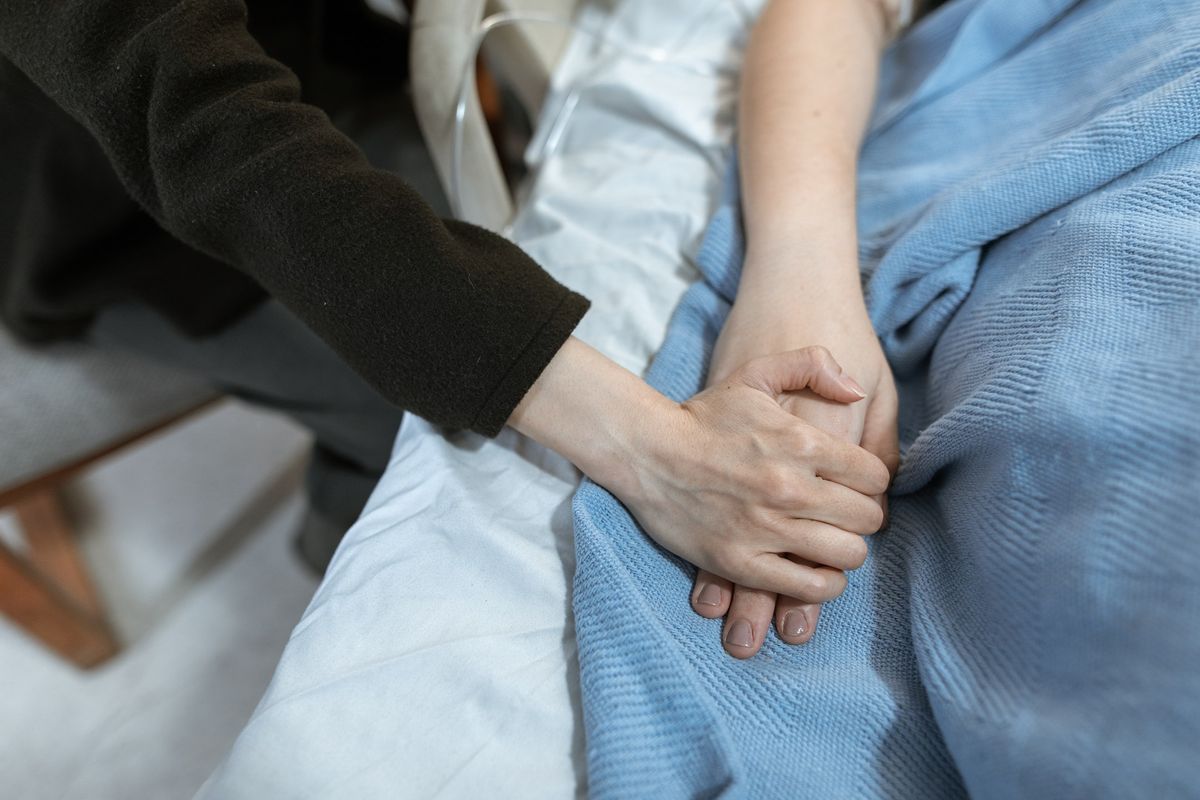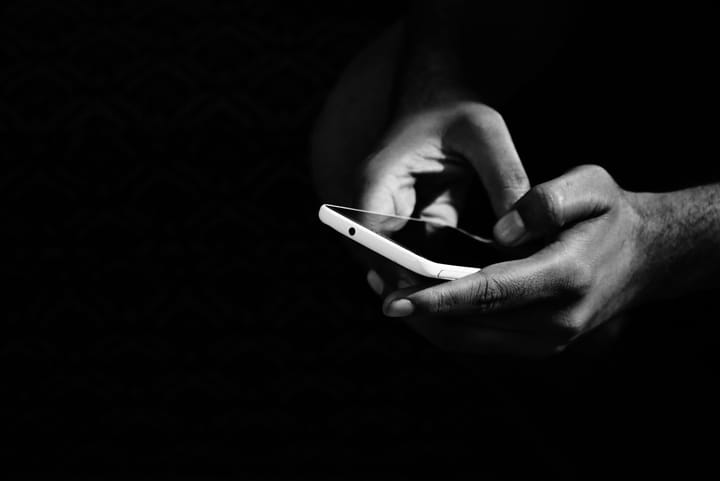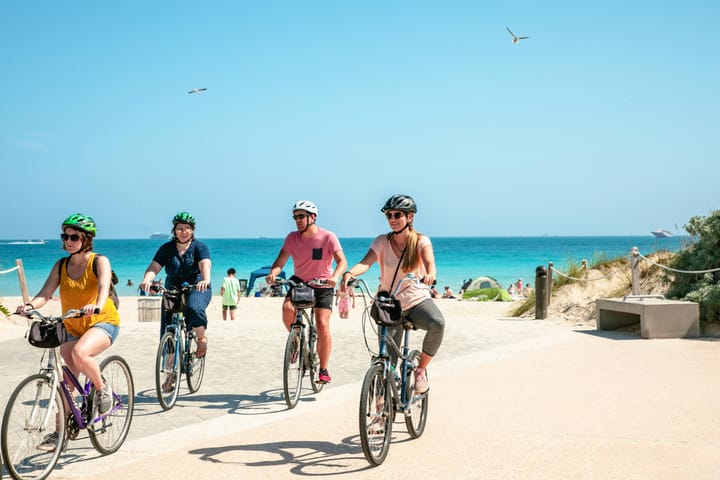Atlanta frontline nurse London Harrison speaks out about facing COVID-19 pandemic

A few minutes every morning is all you need.
Stay up to date on the world's Headlines and Human Stories. It's fun, it's factual, it's fluff-free.
London Harrison (RN) has been working as a frontline nurse in Atlanta for the past 7 years, and her professional life has undoubtedly seen some changes and challenges throughout the COVID-19 pandemic. While we have all been affected by this global health crisis, the reality is that frontline healthcare workers are the individuals most directly in contact with the effects of the coronavirus. Working in Atlanta’s healthcare system means working in the largest city in Georgia – which is still in the top 10 states for the most overall COVID-19 cases and deaths in the United States since the start of the pandemic.
A committed journey to nursing
It’s easy to feel like our lives have all been turned upside down during this time. But for healthcare workers, the toll has been severe on a daily basis. Harrison works as a charge nurse in the emergency department of the Wellstar Atlanta Medical Center, a large hospital in the heart of Atlanta. A charge nurse is a registered nurse leader that oversees a specific department. This means Harrison has many additional responsibilities, including delegating nursing duties and assignments, coordinating schedules and other administrative tasks.
The road to the nursing field wasn’t straight as an arrow for her. “I had been told that I’d be a good nurse by my grandparents when I was a child,” says Harrison. While she had occasionally considered the career at certain points in her life, it was the tragedy of experiencing the hospice process before losing her mother to cancer that turned her sights in the nursing direction – even though it meant adding years to her higher education journey.
After a long journey gathering prerequisites, she eventually graduated from Mercer University College of Nursing with a Bachelor of Science in Nursing (BSN). In the meantime, she worked hard to gain the necessary experience to pursue her career upon graduation. She started as a volunteer, then with enough schooling, she began serving as a patient care tech. Upon graduating, Harrison began her career as a frontline nurse in the emergency department. To say she is driven and passionate within her field is an understatement, and her commitment to her profession is admirable.
The frontline takes a toll
Like any frontline nurse, Harrison is a strong individual that has to face emergencies every day on the job, but the biggest impacts of COVID-19 are the additional burdens and exhaustion that come with the pervasiveness of the coronavirus. After 10 months of dealing with the pandemic, she says “you never know who’s going to have it.” When it comes to the variety of trauma patients in the emergency department seeking treatment for a number of different ailments, it seems possible anyone can test positive for the virus – adding a level of gravity and sensitivity to their care plan.
For nurses, additional personal protective equipment (PPE) in these times is not optional – and this in itself is an added drain on their everyday working lives. Wearing N95 masks, face shields and eye protection at all times is physically taxing for many, especially those like Harrison whose position requires constant verbal communication with her staff as well as patients.
A pandemic is also challenging for hospitals in terms of staffing. Hospital workers are incredibly vulnerable to getting COVID-19, as they are often exposed more than the average person and unable to practice social distance since their work requires demanding face-to-face interactions. Harrison reports that a few colleagues have had to miss work to quarantine after testing positive for the virus. Though many of them, as with most people, can’t say for sure if their case was contracted at work or from contact with significant others or in daily life outside of the office.
This vulnerability puts into sharp focus the significant nursing shortage faced in much of the US. While it’s not often discussed, nursing publications and labor statistics broadly acknowledge that the gap between available nursing jobs and people available to fill those positions is expanding, and COVID-19 is not making the situation better.
Georgia is one of the 5 states most impacted by the nursing shortage, boasting a ratio of only 10.23 nurses per 1,000 population as of 2018/2019 data. This is the 45th lowest ratio in the country, meaning only 4 states have a worse ratio. “The staffing/nurse shortage means you don’t have the bodies to care for the patients who are there,” says Harrison. This is one reason the pandemic is still such a serious problem for the country and specifically for Georgia, and nurses in the state are feeling those effects. Nurse Harrison shares that hospitals are having to “get creative” with tactics, like having nurses previously transitioned to administrative roles (often those with Masters in Nursing or Nurse Practitioner degrees) returning to a more traditional nursing role to help fill in the gaps.
A light at the end of the tunnel
With vaccines now on the horizon for many and Harrison herself having recently received the vaccine, she shares that hope is increasing throughout the hospital. Explaining that the vaccine is “not about me, it’s about my patients,” Harrison refers to the importance of healthcare workers being vaccinated so they do not risk unintentional transmission of the virus while caring for their patients. The past few years, Harrison has also worked as a camp nurse at Aurora Day Camp, Georgia’s only full-summer day camp for children with cancer and their siblings. Having the vaccine makes it more likely she will be able to volunteer in this role again this summer if the camp is able to resume operations.
Hearing the perspective of a frontline nurse makes it clear that we owe a great debt to our healthcare workers. They’re in a system where many patients simply need better education on how to stay healthy and avoid chronic conditions, and this lack of knowledge makes dealing with a pandemic all the more difficult. We can consider ourselves lucky that healthcare workers like nurse Harrison are there to serve on the frontlines for the battle we all face against this deadly virus. Hopefully as vaccines reach more people, we will see an end in sight to this shared crisis and be able to focus on having a healthier society overall.
Nurse Harrison contributed to this article in her personal capacity. The views expressed are her own and do not necessarily represent the views of Wellstar Atlanta Medical Center.
Have a story to share? Get in touch at contributors@themilsource.com




Comments ()